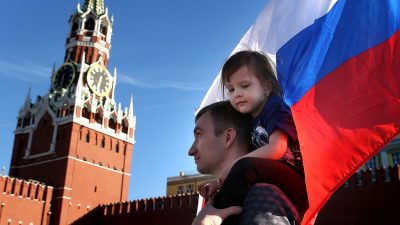Historic Constitutional Changes in Russia

In January during an address to Russian lawmakers, Vladimir Putin proposed long overdue changes to the country’s out-of-date Constitution.
They include what Sputnik International called “a heavy focus on social and organizational/governance issues” — notably guaranteeing a living wage and indexation of pensions in line with inflation.
Other amendments include a presidential advisory State Council to “ensur(e) the coordinated functioning and interaction of state authorities, as well as determining the main directions of domestic and foreign policy.”
There’s much more, including how key Kremlin officials are chosen, the lower house State Duma and upper house Federation Council to be involved in the process.
The Constitutional Court’s powers are expanded — to sign off on the constitutionality of laws before taking effect.
Dual citizenship is prohibited for government officials.
Sputnik explained that this amendment “forces…officials (with dual citizenships) to make up their minds as to whom they serve and compels them to choose their loyalties accordingly,” adding:
The amended Constitution “aim(s) to protect Russia’s sovereignty and territorial integrity, prohibiting any attempts or calls to alienate part of its territory.”
Putin may seek two more terms as president, potentially permitting him to remain in office until 2036.
While presidential terms are limited to two consecutive ones, time in the nation’s highest office up to now is excluded, Putin able to run again two more times if he wishes.
Currently age-67, he’d be 84-years-old if remains in office until 2036.
Russia’s current Constitution was adopted in 1993, following the Soviet Union’s December 26, 1991 dissolution.
Heavily influenced by Western advisors, it’s out-of-date and inappropriate for today’s Russia, why amending it significantly was long overdue.
The newly adopted Constitution is a modern-day Russian declaration of independence, according to its amended highest body of laws.
In polar opposite fashion to how the US Constitution was adopted — by its ruling class exclusively, ordinary Americans with no say — Russians voted by national referendum on whether to adopt the new amendments up or down, how democracy is supposed to work.
According to Russia’s Central Election Commission (CEC) on Thursday with all ballots tabulated, an overwhelming 77.92% of voters backed the amendments — a significant endorsement of what Putin proposed months earlier.
A statement by CEC head Ella Pamfilova said
“(t)here is no doubt that (results are) legitimate, but this will be officially confirmed at a CEC session that will take place very soon.”
On Wednesday, she said turnout was almost 65%, the process completed with little evidence of irregularities.
According to Main Directorate for Political-Military Affairs of the Russian Armed Forces head Andrey Kartapolov, “more than 1.5 million military people voted,” a turnout of over 99%.
Clearly they were “encouraged” to vote.
European Parliament legislator Helene Laporte observed the process, saying the following:
“…I can say that the voting here meets all the democratic requirements,” adding:
“The right to vote has been granted to absolutely everyone, even disabled persons and those who cannot get to a polling place can vote at home” online.
*
Note to readers: please click the share buttons below. Forward this article to your email lists. Crosspost on your blog site, internet forums. etc.
Award-winning author Stephen Lendman lives in Chicago. He can be reached at [email protected]. He is a Research Associate of the Centre for Research on Globalization (CRG)
His new book as editor and contributor is titled “Flashpoint in Ukraine: US Drive for Hegemony Risks WW III.”
http://www.claritypress.com/LendmanIII.html
Visit his blog site at sjlendman.blogspot.com.

